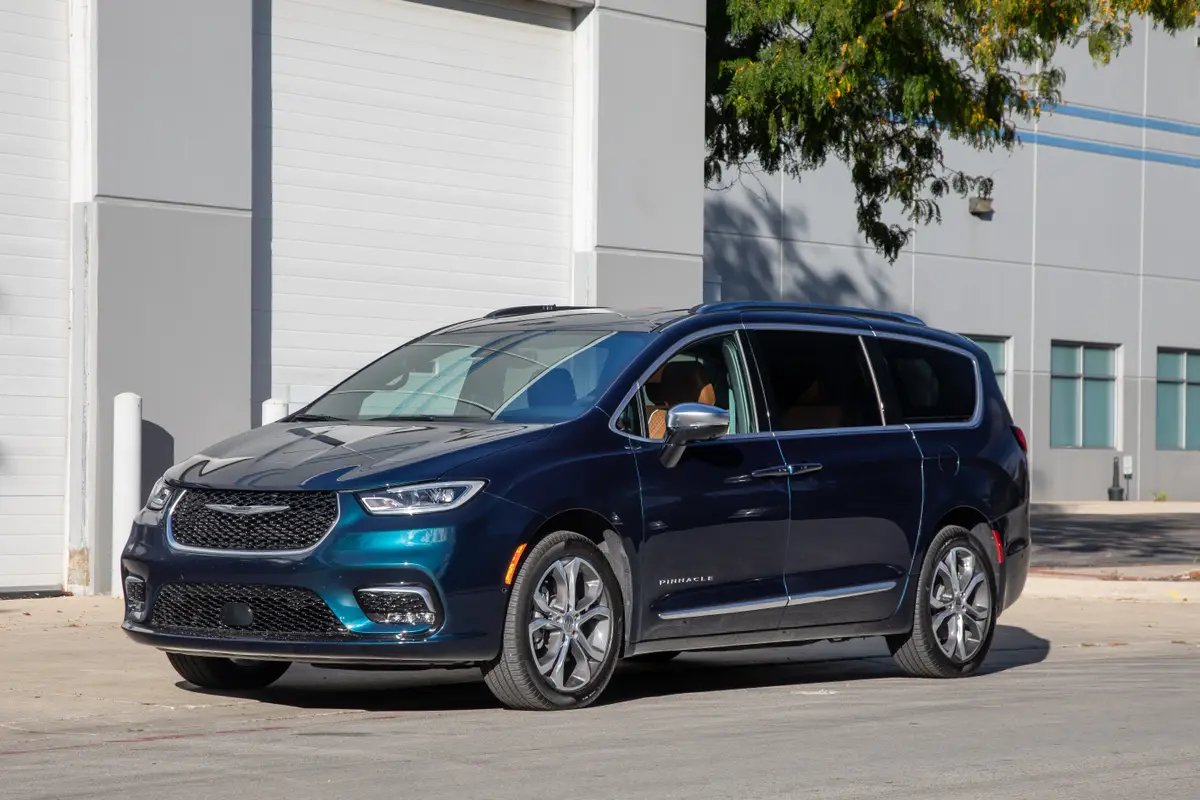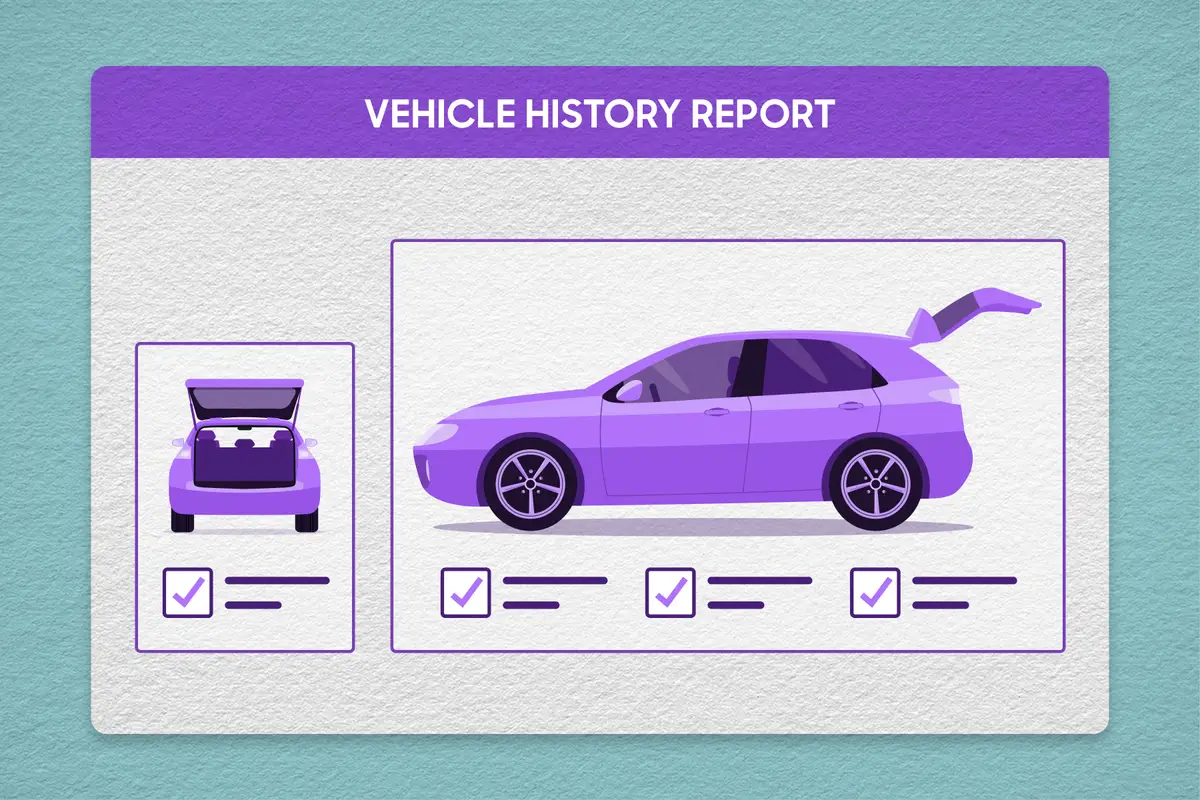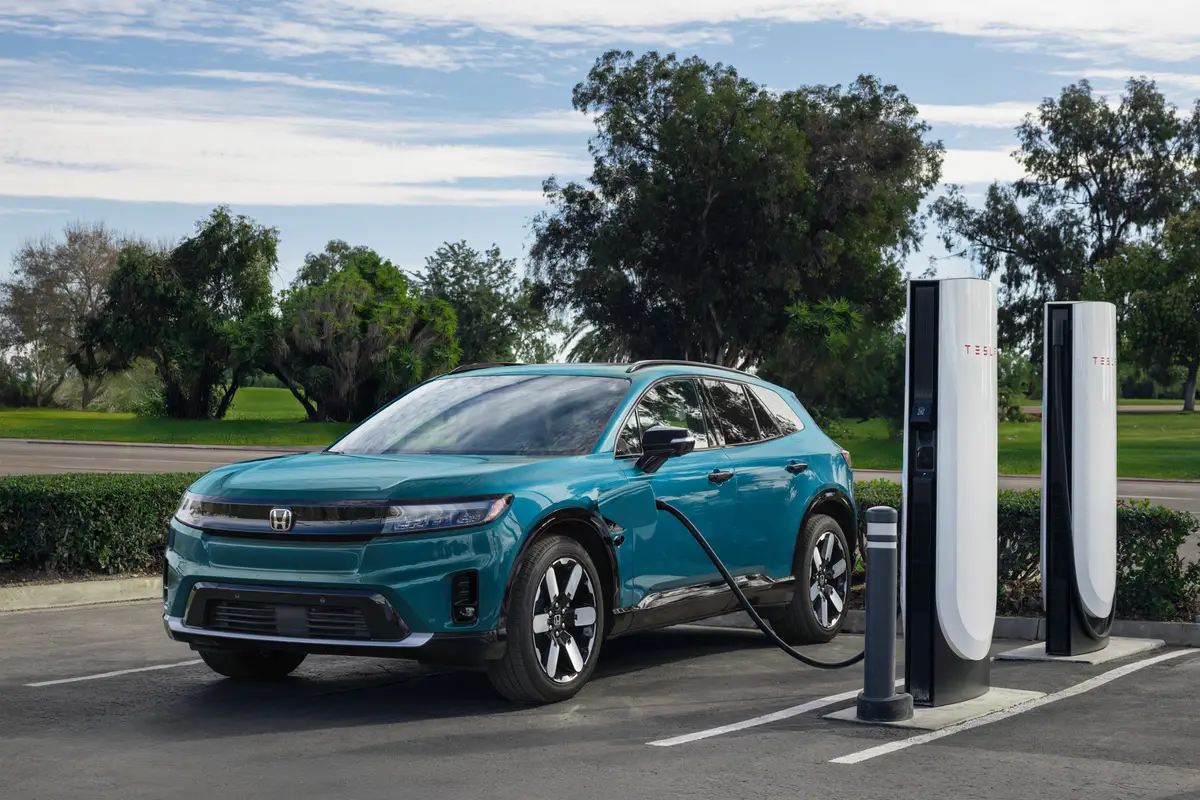2024 Toyota Sequoia TRD Pro: Likes and Dislikes

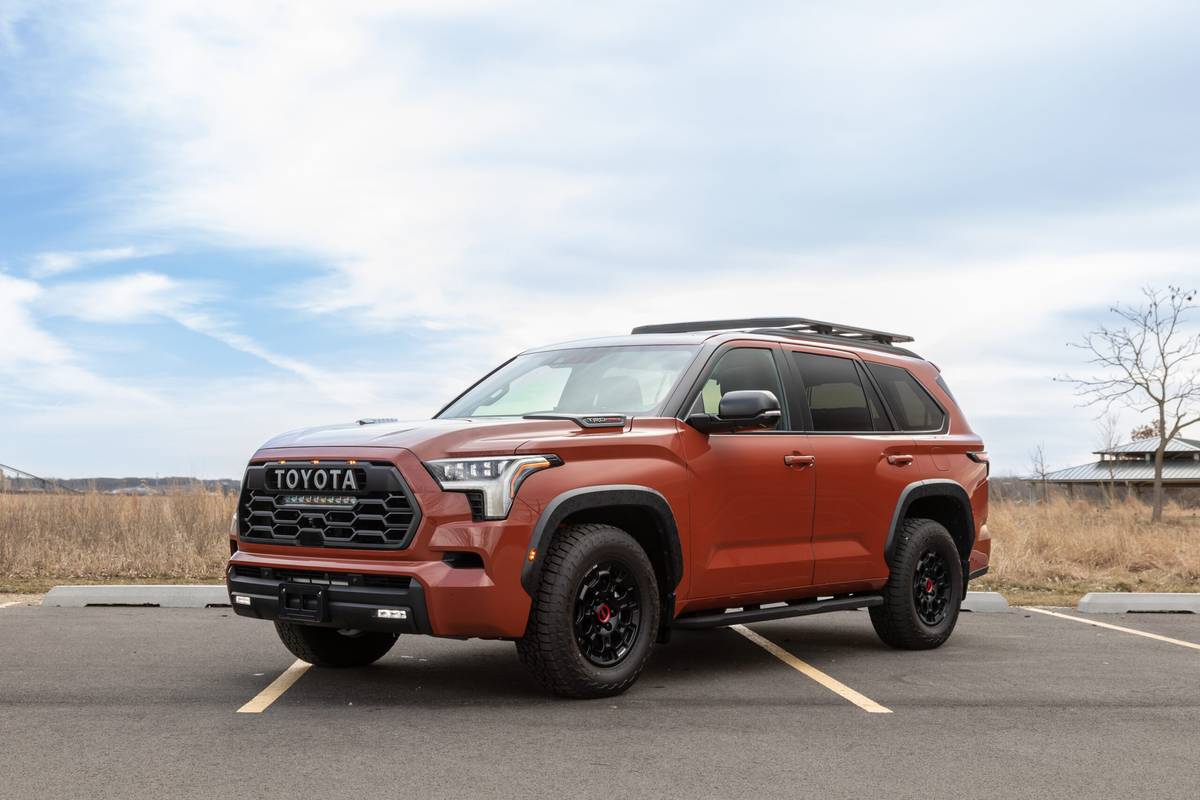
Prior to its long-overdue redesign for the 2023 model year, the Toyota Sequoia full-size SUV was one of the oldest new vehicles on the market. Yes, it boasted Toyota’s trademark build quality and reliability, but the Sequoia’s basic design dated all the way back to the 2008 model year, and by the time it reached its 15th birthday, it was really showing its age. The interior layout, available technology features and on-road driving dynamics had all fallen well behind the times, and its fuel economy was dismal even by large SUV standards.
Related: 2023 Toyota Sequoia Review: Big and Beastly, But Not Quite Perfect
On paper, the completely redesigned 2023 Sequoia seemed like a can’t-miss proposition. A fresh platform and a standard i-Force Max hybrid powertrain — both shared with Toyota’s redesigned-for-2022 Tundra full-size pickup — promised better driving manners and much-improved efficiency, and the new engine was more powerful to boot. The twin-turbocharged 3.5-liter V-6 powertrain is rated at an impressive 437 horsepower and 583 pounds-feet of torque, and with four-wheel drive, it’s EPA-rated at 19/22/20 mpg city/highway/combined — not outstanding, but a darn sight better than the 13/17/14 mpg rating of the 2022 4WD Sequoia and its elderly 381-hp, 5.7-liter V-8.
Here’s the catch, though. In designing the 2023 Sequoia, Toyota mounted the hybrid system’s battery beneath the third-row seats and switched from the previous generation’s independent double-wishbone rear suspension to a multi-link solid rear axle (likely to improve towing capability and keep development costs down). Those packaging choices significantly compromise the Sequoia’s cabin space — and passenger- and cargo-hauling capability is a key consideration among large SUV shoppers.
There are still things we like about the Sequoia (which receives a few trim updates but no substantial changes for 2024), but the 2024 TRD Pro model we recently tested put several of the Sequoia’s shortcomings into sharper focus.
Likes
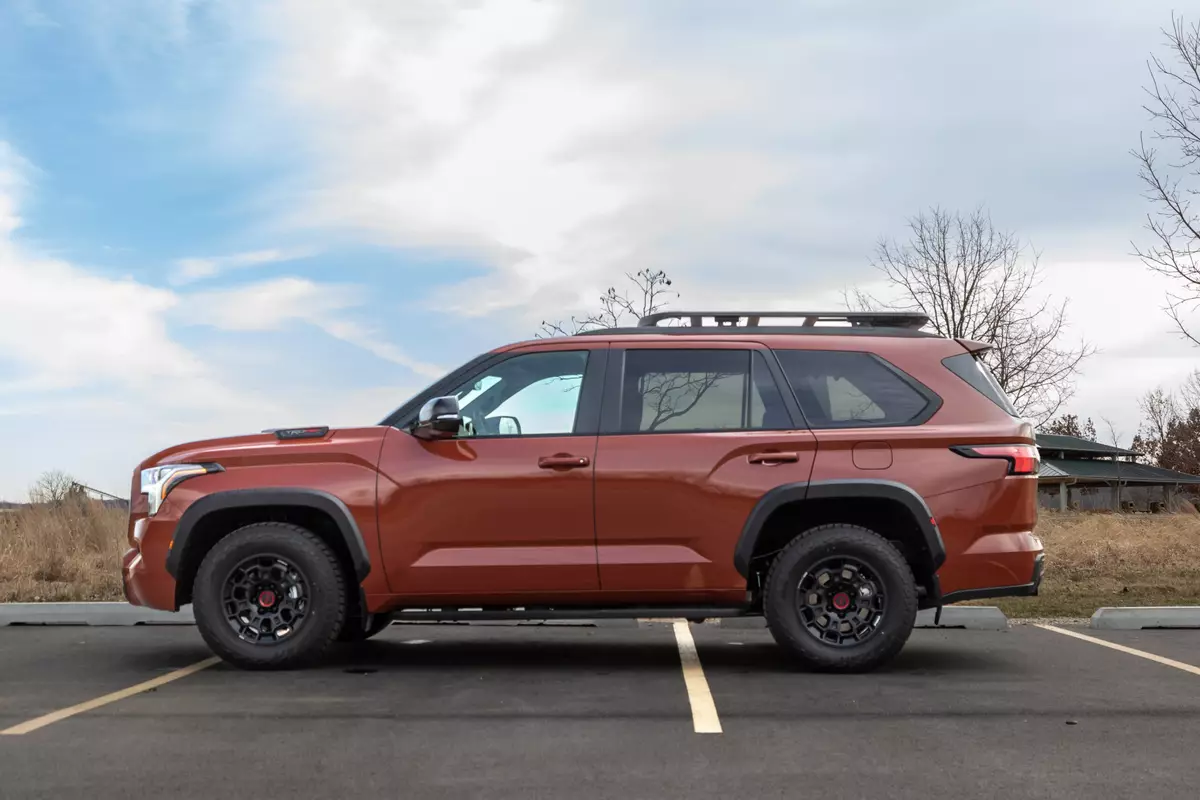
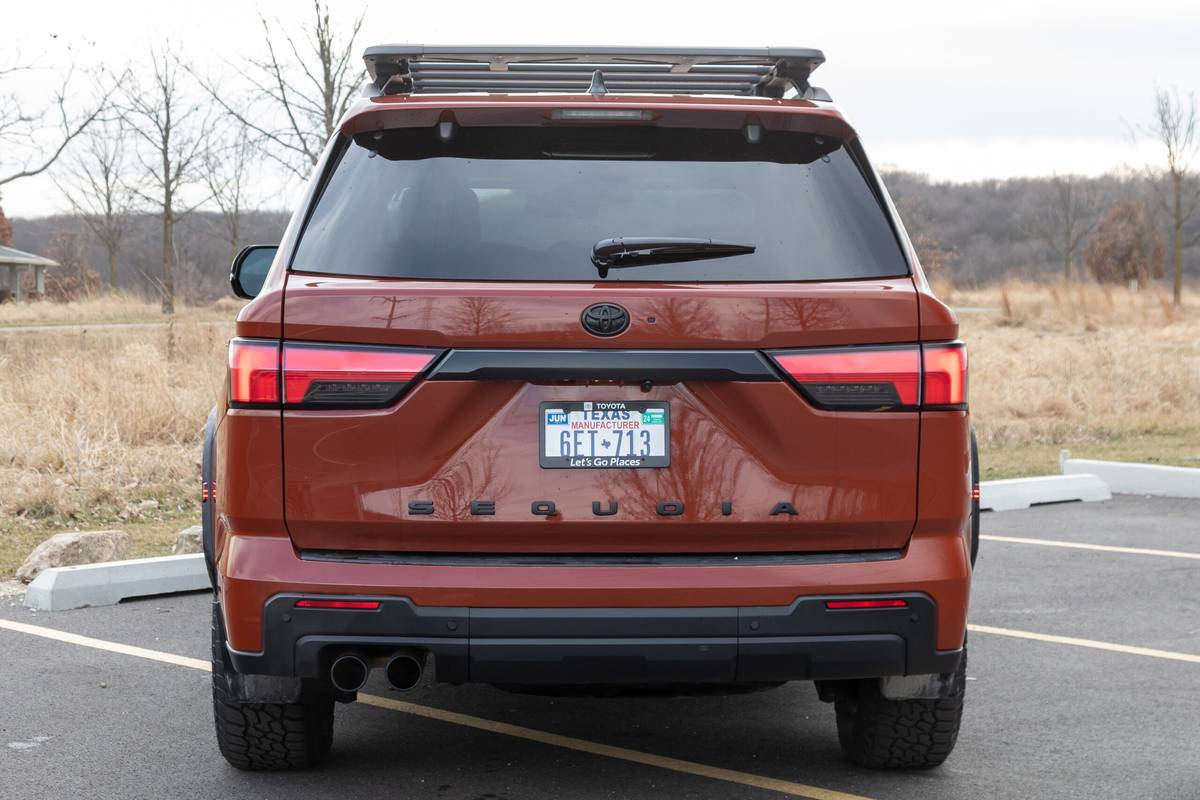
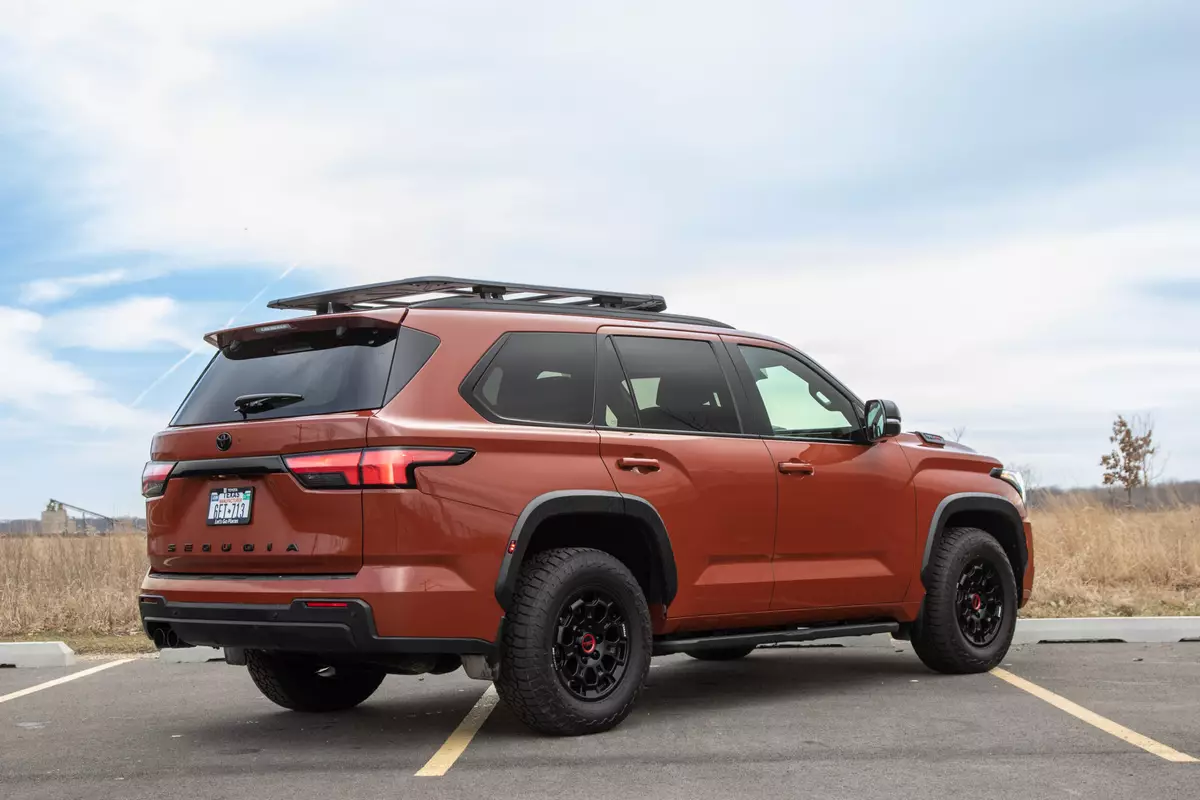
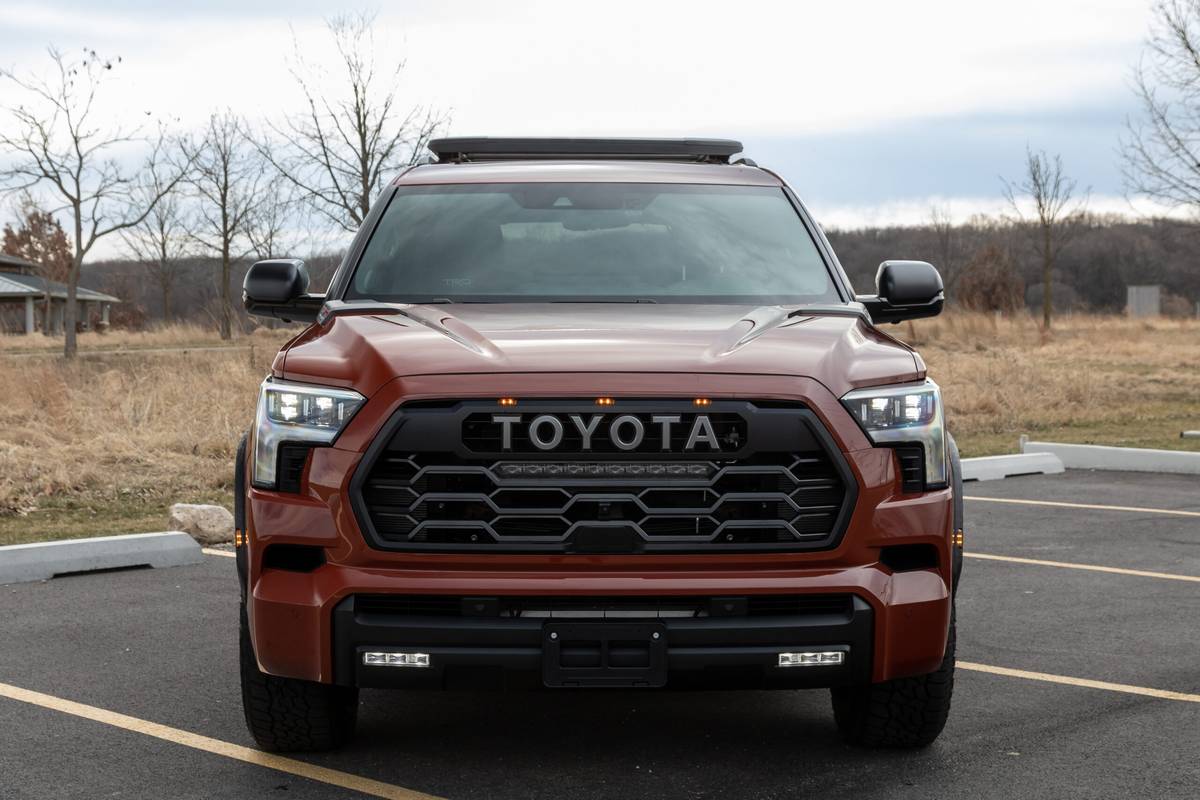
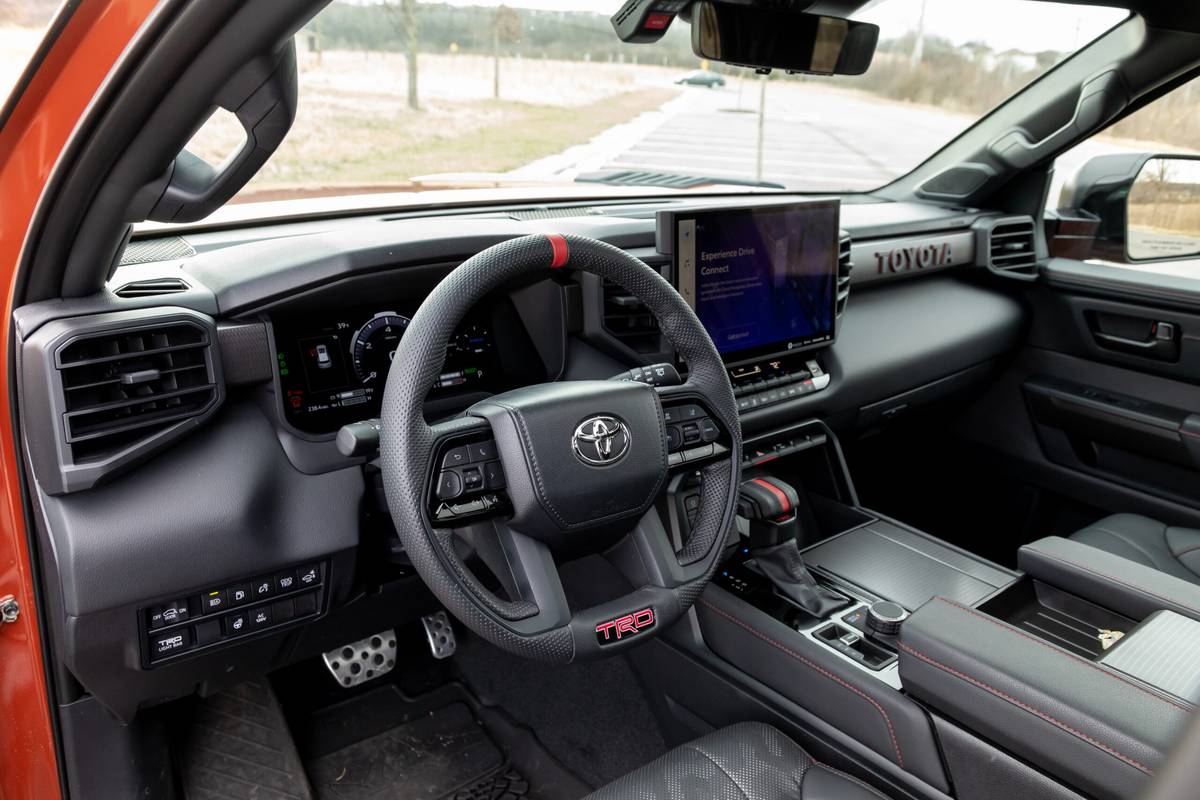





1. Stylish Exterior and Interior Design
The third-generation Sequoia looks good inside and out, with pleasing proportions and distinctive details. The crisp body character lines help it wear its extra-large exterior dimensions well, and the dashboard is stylish, functional and equipped with up-to-date tech features.
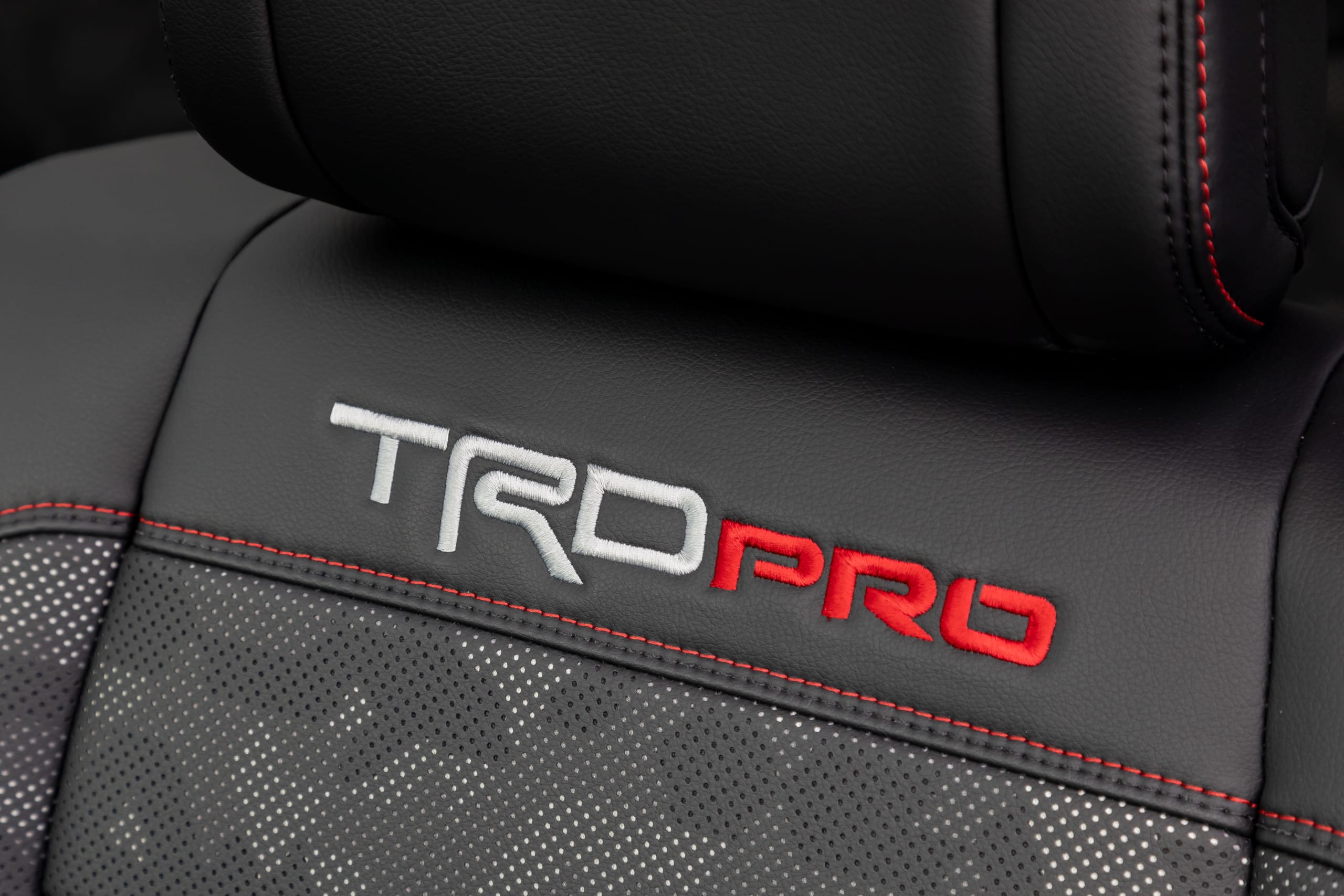
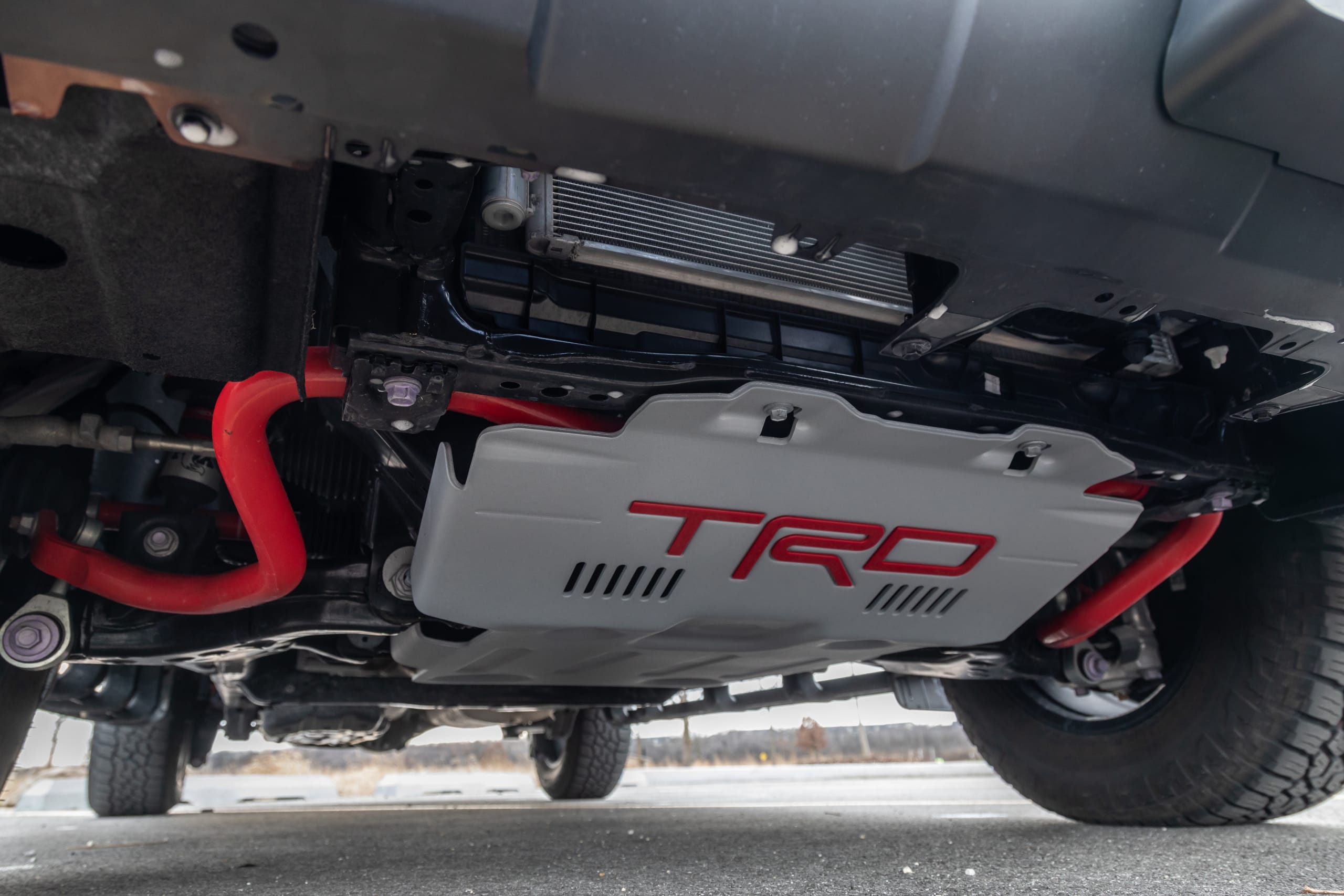
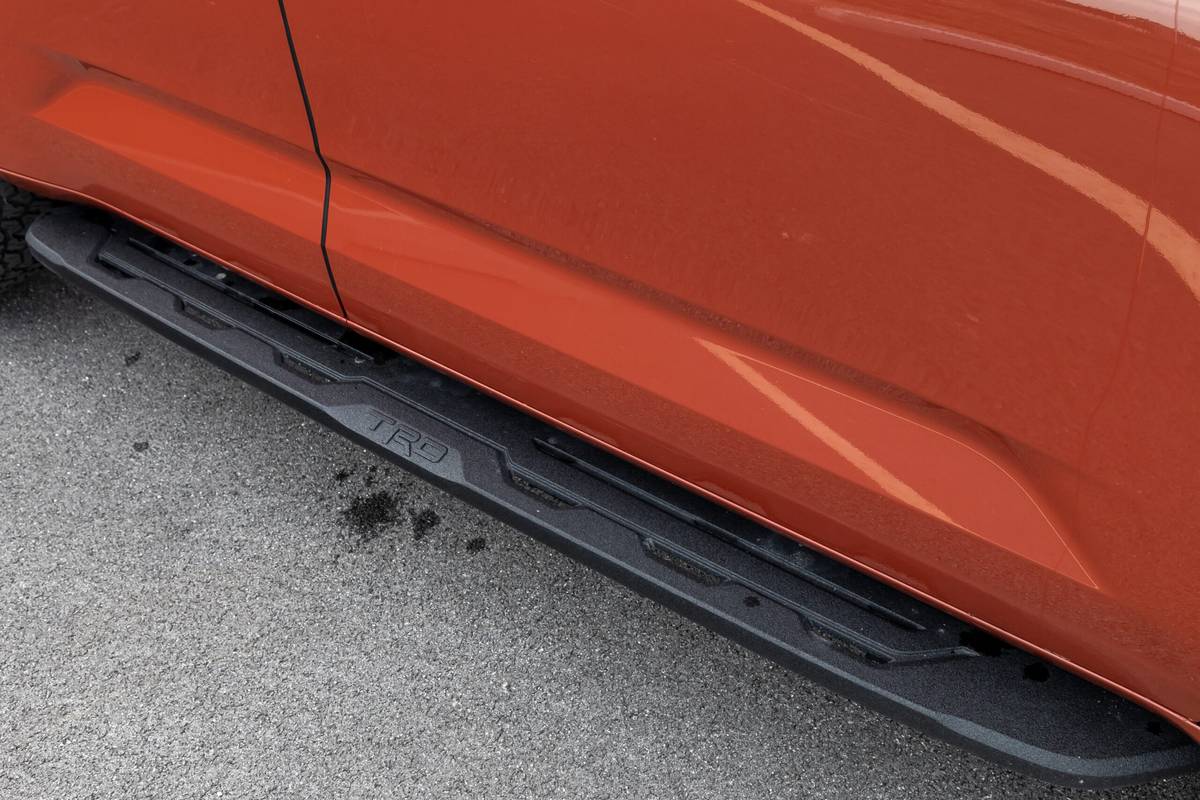
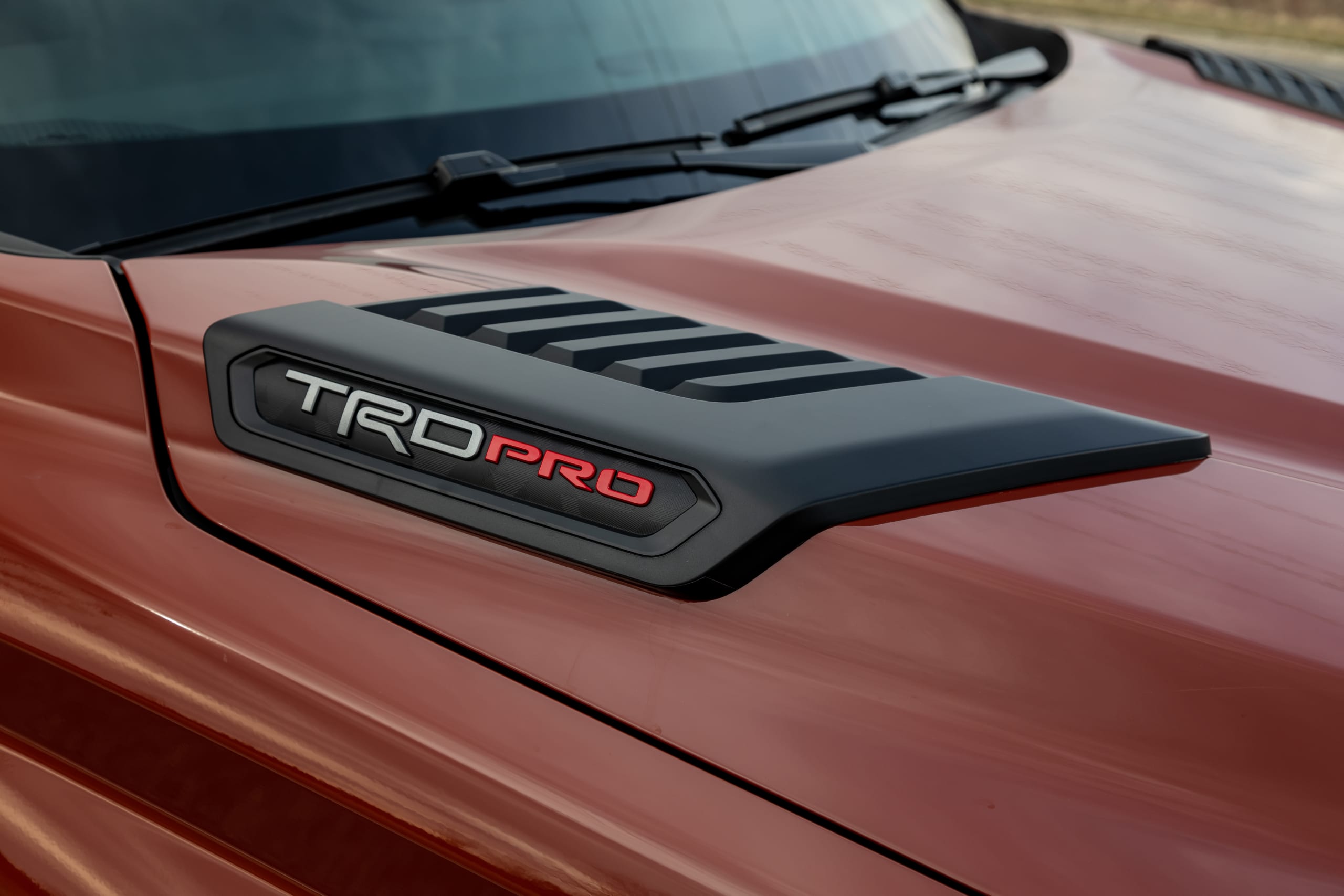
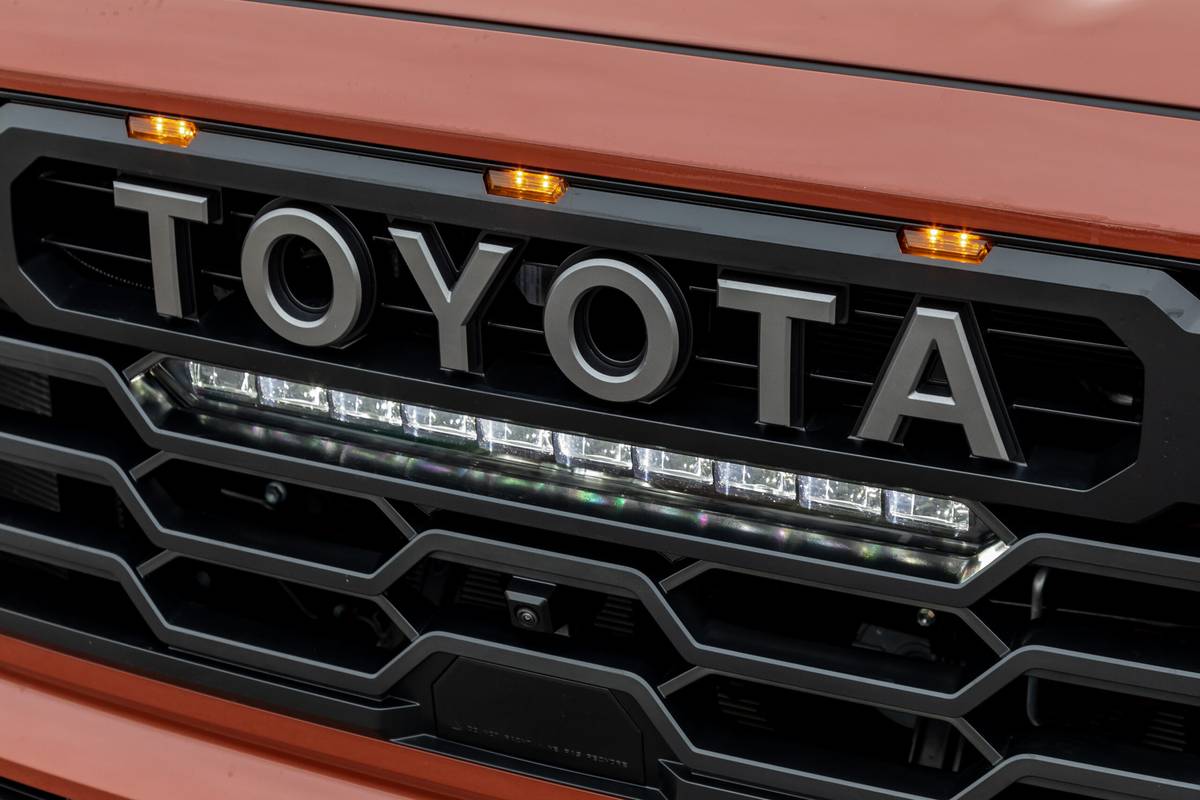
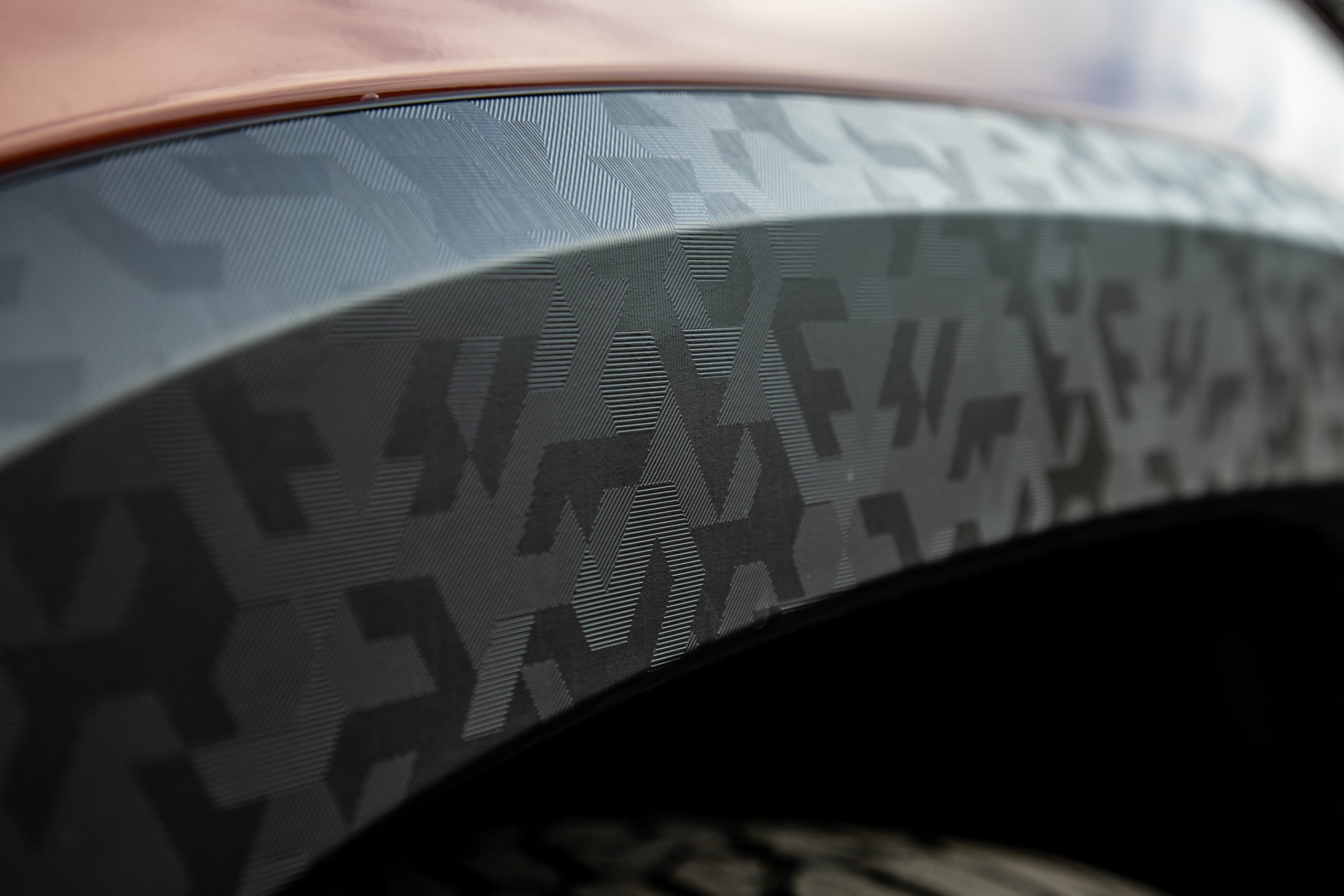
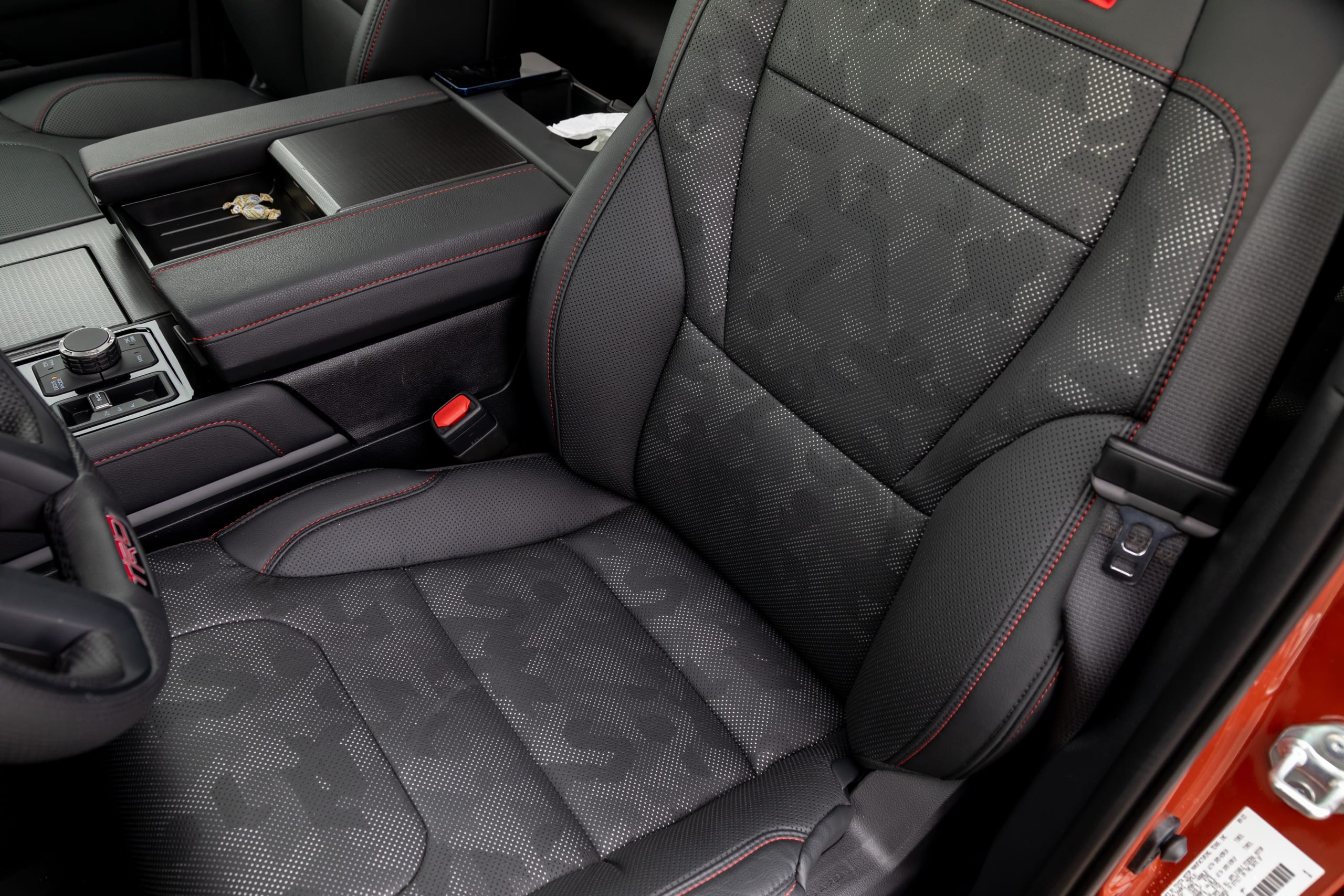
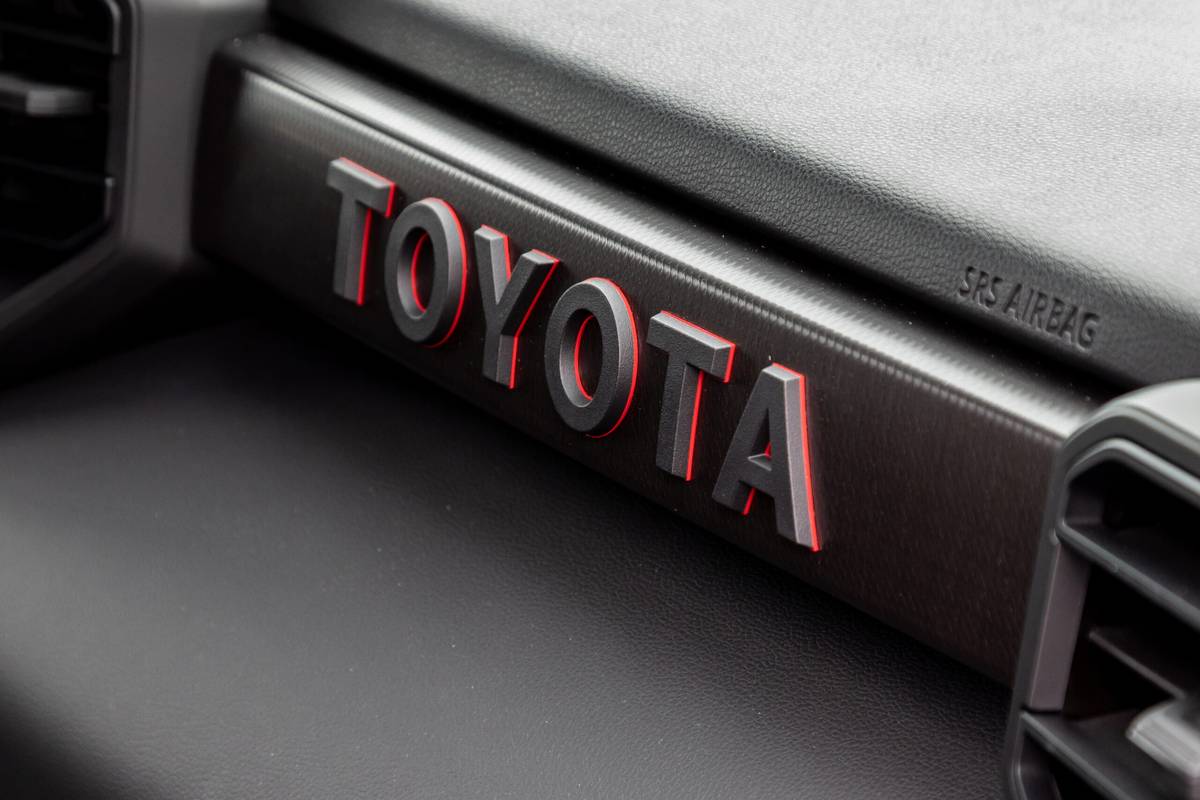
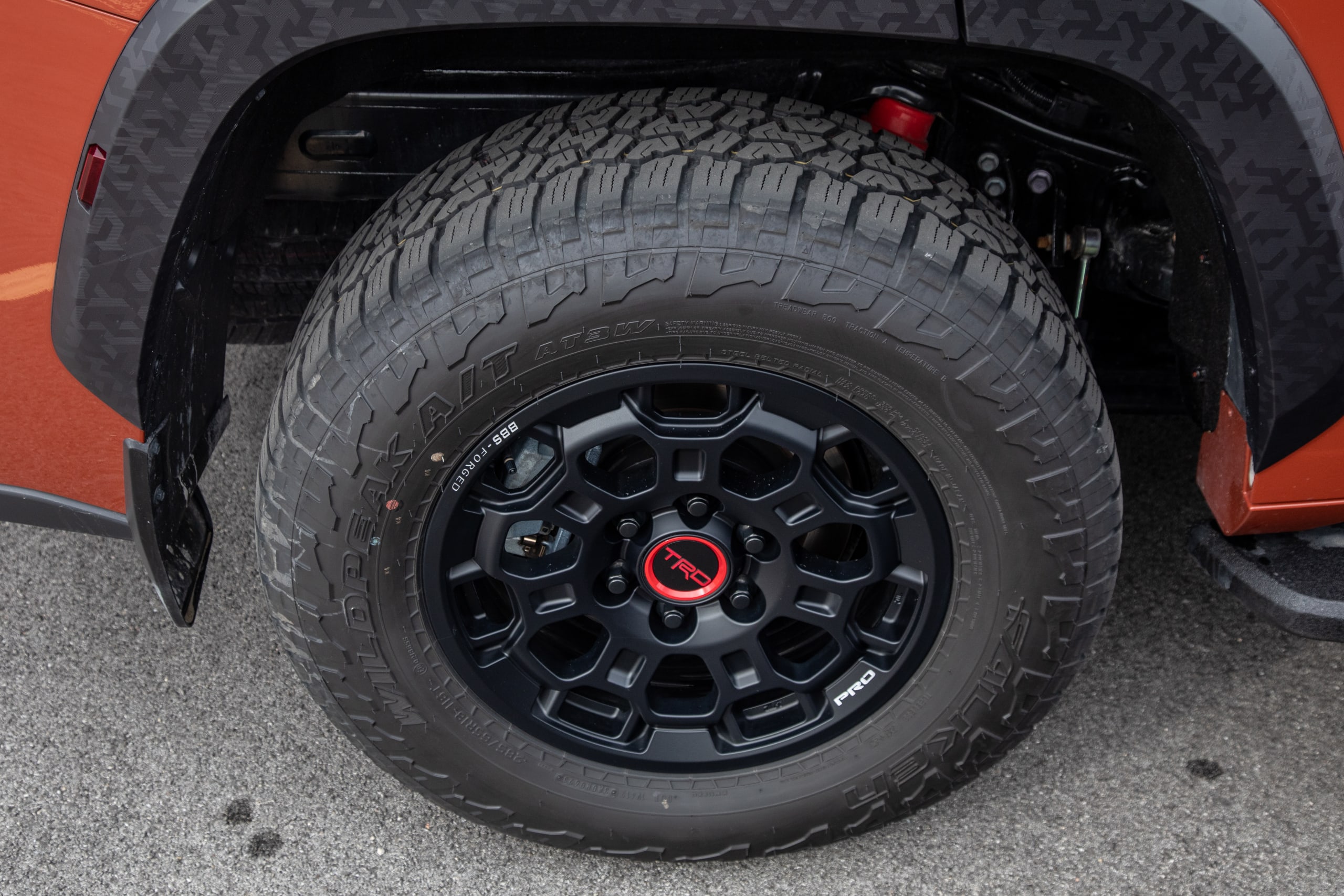
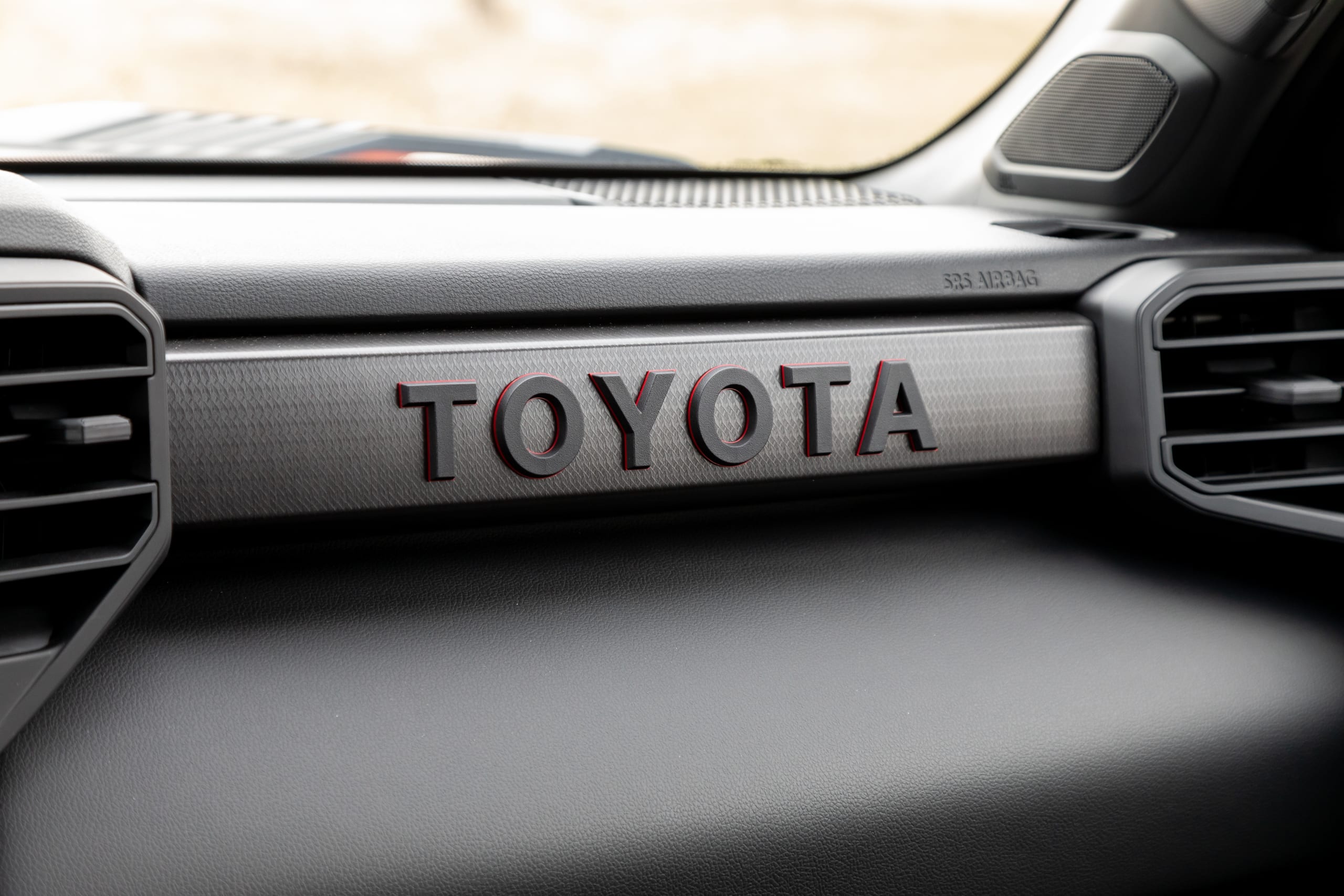










2. TRD Pro’s Unique Features
The off-road-focused TRD Pro trim adds a host of functional features and nicely executed cosmetic touches that are in step with current overland-adventuring fashion. A TRD aluminum skid plate, TRD Pro-specific off-road suspension with Fox shocks, 18-inch BBS forged-aluminum wheels, “technical camo” upholstery on the first- and second-row seats, and retro Toyota lettering on the grille and passenger side of the dashboard are just a few of its distinguishing features.
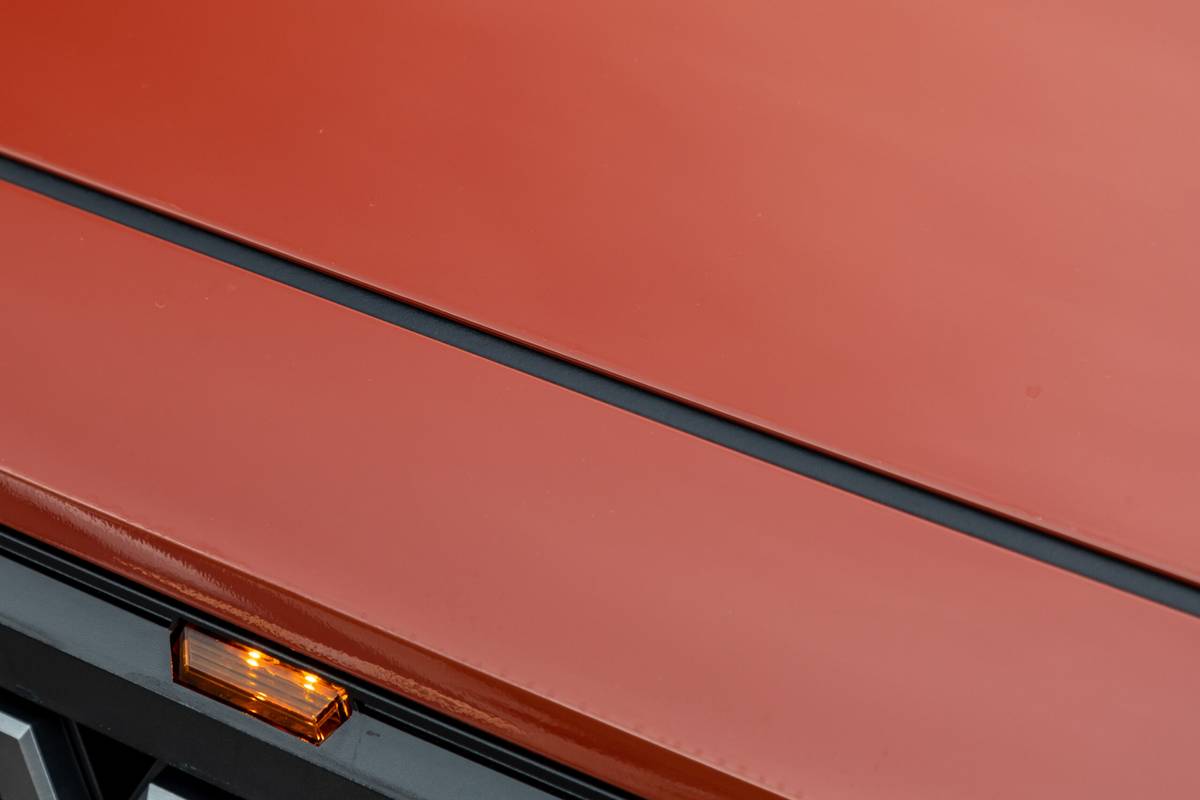
3. TRD Pro’s Exclusive Terra Paint Color
One of the Sequoia’s updates for 2024 is the addition of an eye-grabbing new hue named Terra that’s exclusive to the TRD Pro trim. Though paint colors are not a primary concern for Cars.com editors, this striking hue had its fans among our staff. I think it looks a little more like orange chocolate than terra cotta, but either way, it definitely helps the Sequoia TRD Pro stand out.
Dislikes
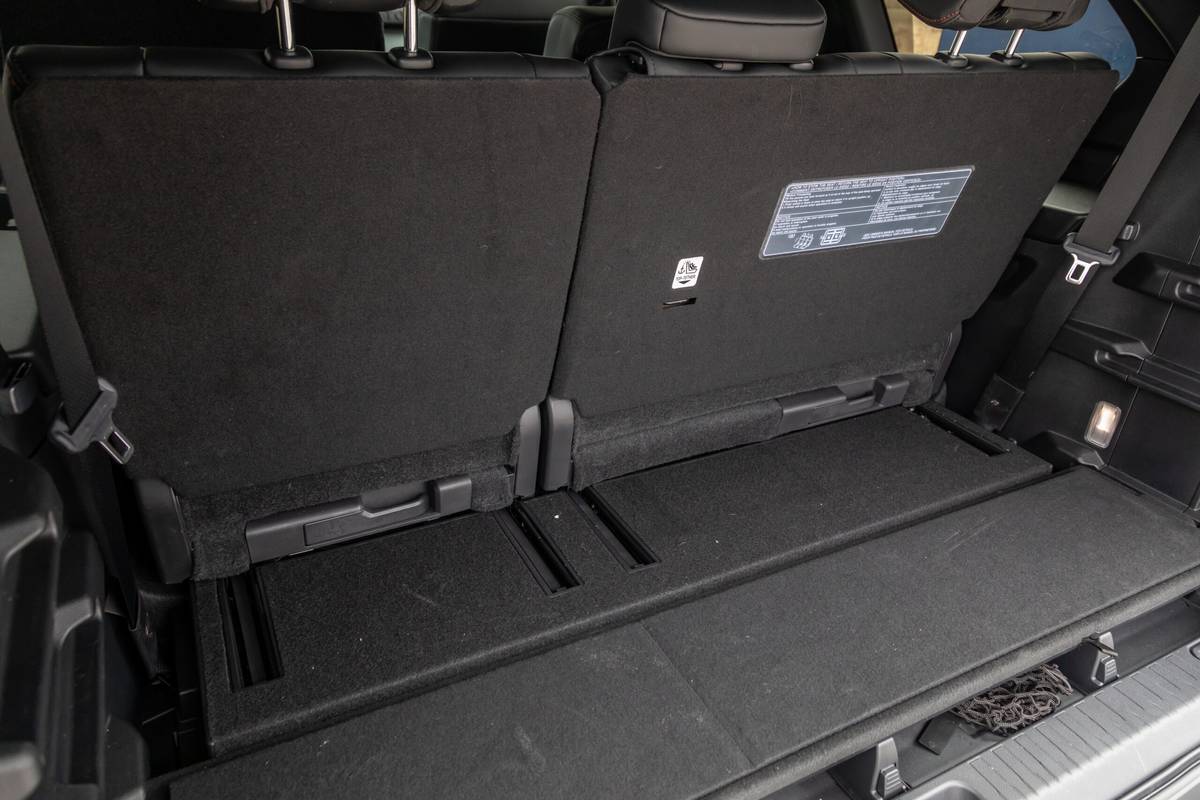
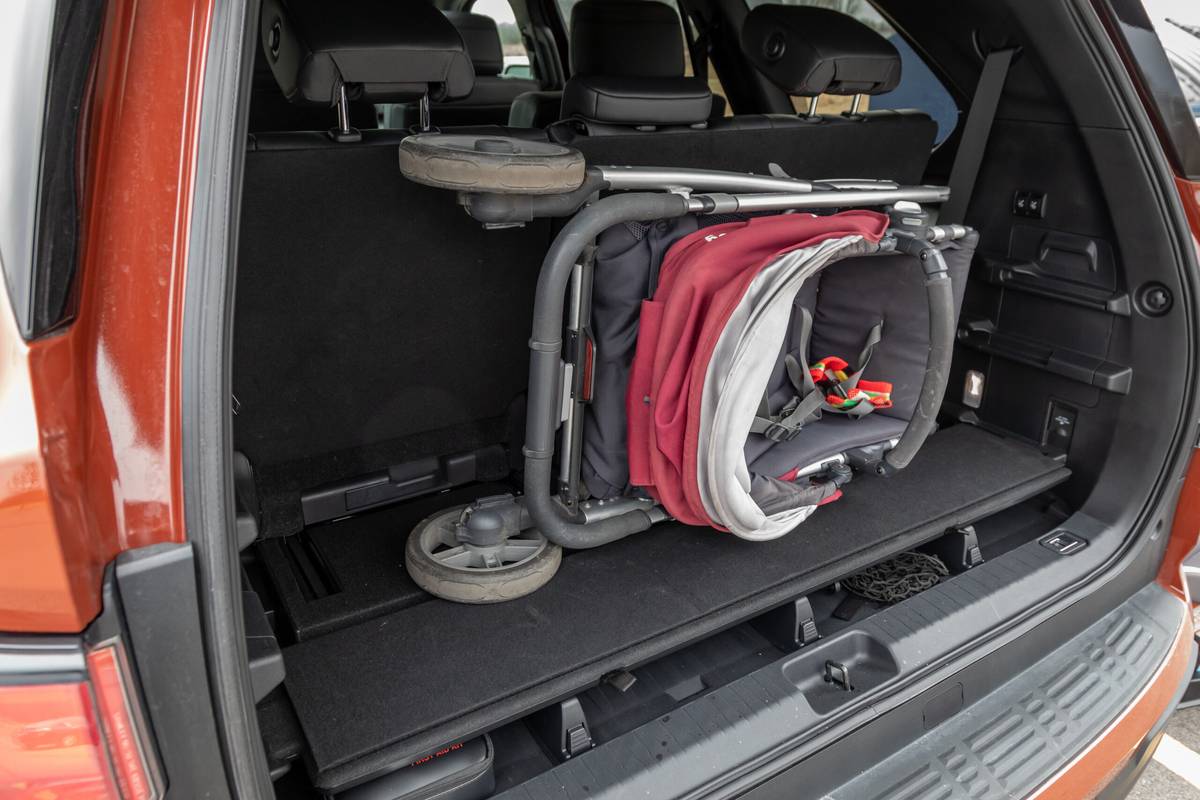
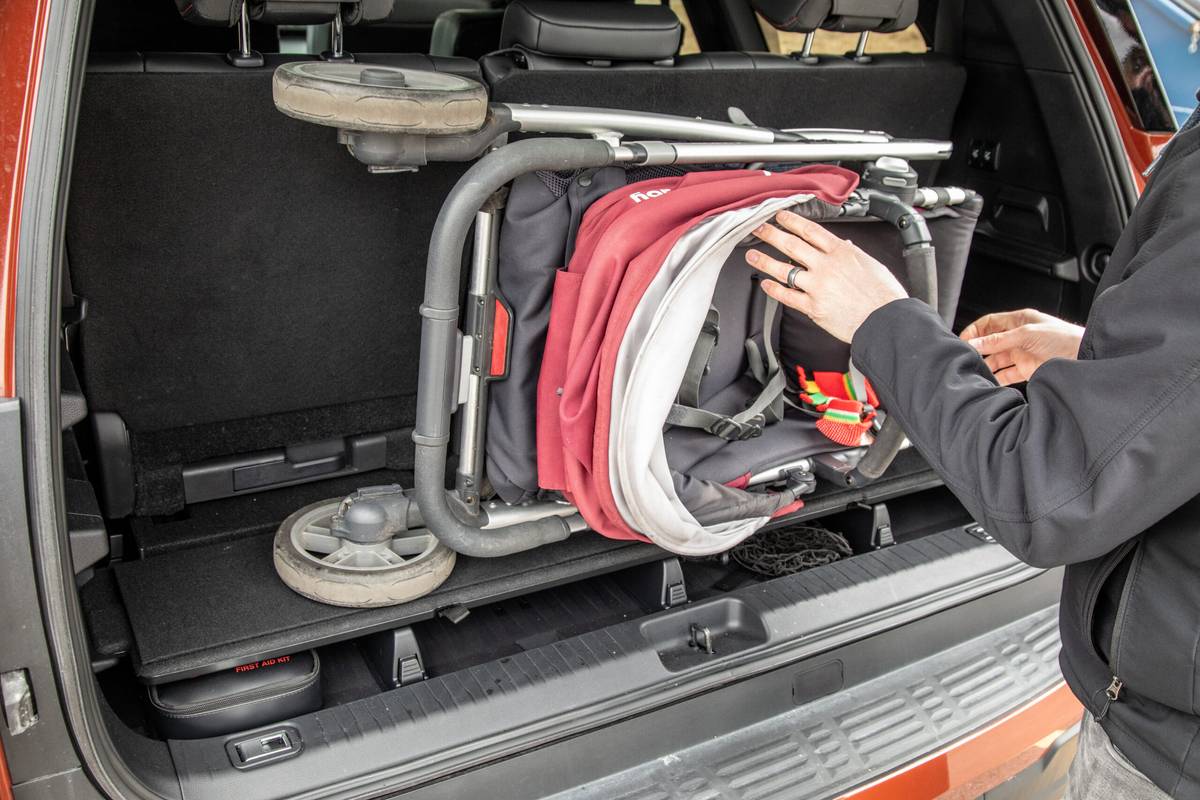



1. Lousy Cargo Space Behind Third-Row Seats
The cargo area behind the Sequoia’s third row is seriously stingy by large SUV standards. By Cars.com’s own testing, it measures 10.7 cubic feet, which trails all other large three-row SUVs we’ve tested save the current-generation Nissan Armada (which is expected to be redesigned in the near future). The Sequoia’s cargo-floor insert can be set at one of three heights to create an additional loading surface (which also facilitates easy access to cargo items via the flip-up liftgate window), but the overall space is subpar.
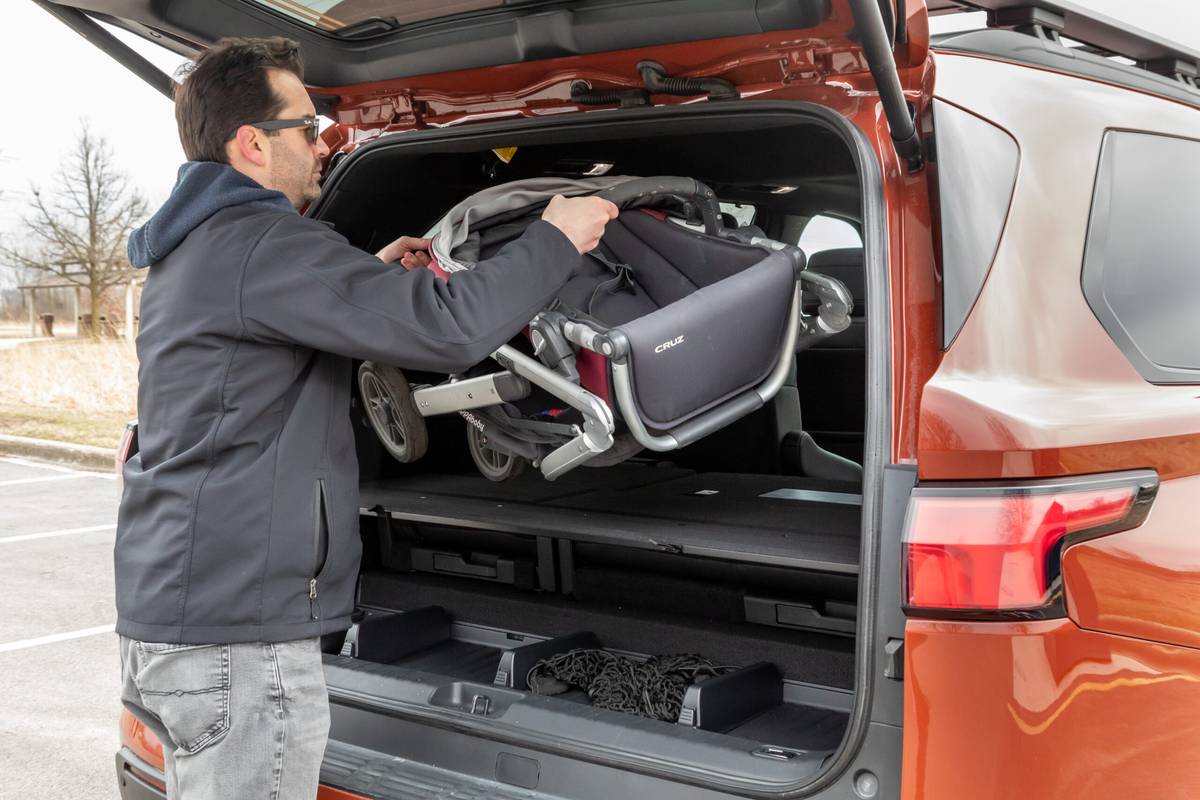
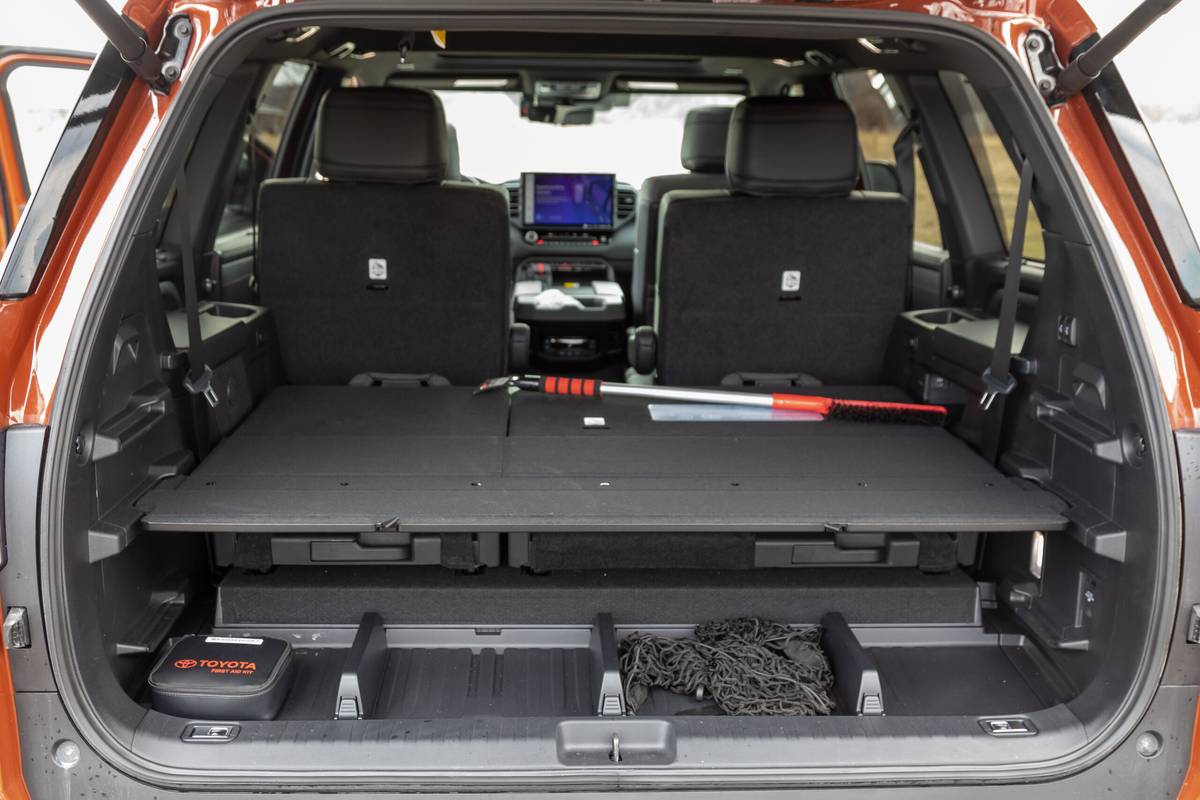
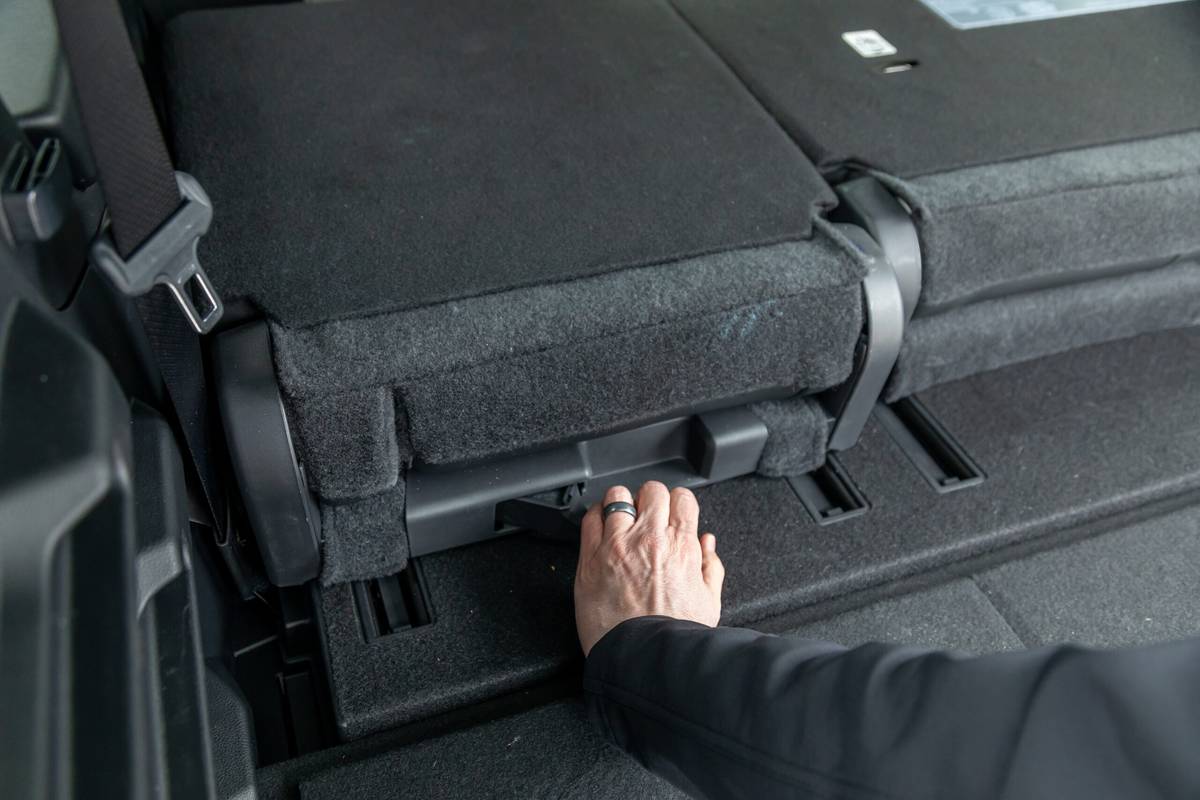



2. High Load Floor With Third-Row Seats Folded
The load floor becomes a bigger problem when the third-row seats are folded. Unlike other large SUVs, the Sequoia’s third-row seats don’t fold flat into the floor. Setting the cargo-floor insert in its middle position creates a smooth, level load floor, but that floor is impractically high, making it extra difficult to load heavy and bulky items and limiting the vertical height of the cargo area.
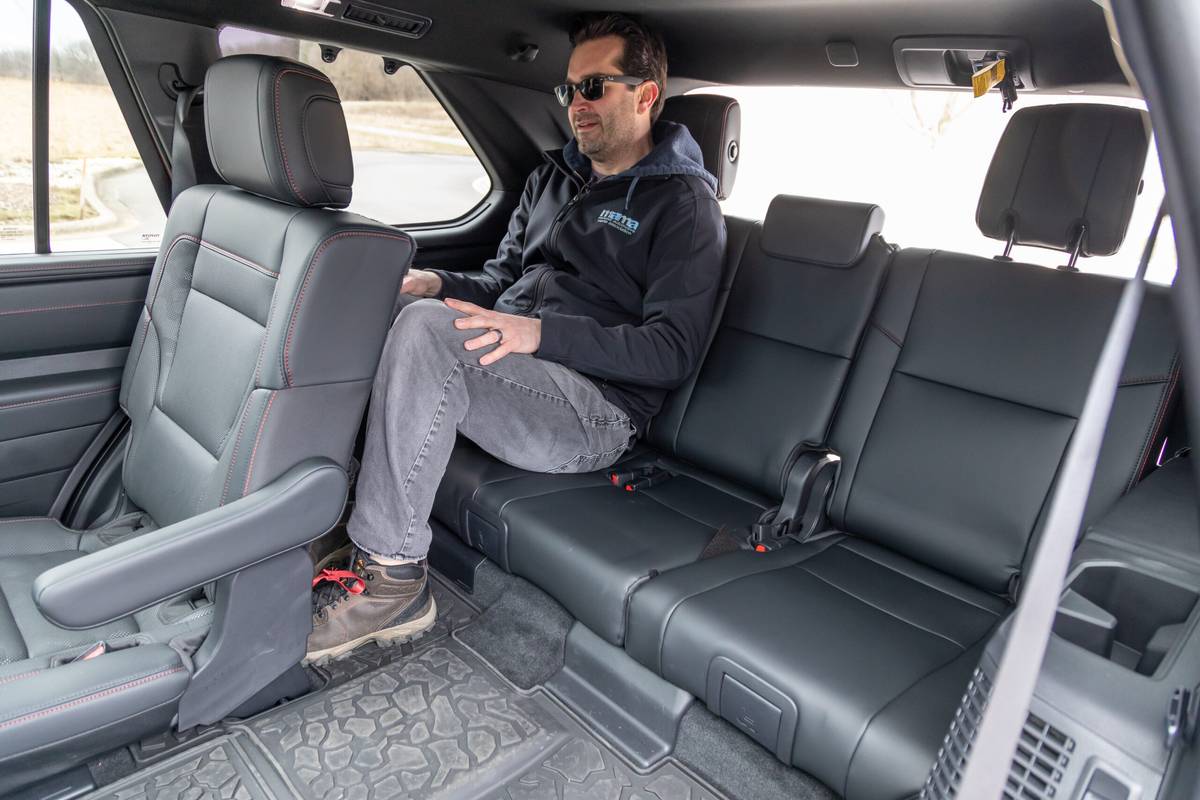
3. Subpar Third-Row Space
In addition to the compromised cargo area, the Sequoia’s third row is disappointingly small, especially for its class. Even with the seats set all the way back (oddly, the Sequoia’s third-row seats slide, but the second-row seats are fixed — the opposite of other SUVs), the third row is too cramped for adults to ride in comfort. Headroom is stingy, and the high floor results in a knees-up seating position. And if the second-row passengers tilt their seatbacks rearward, third-row knee space is cramped, too.
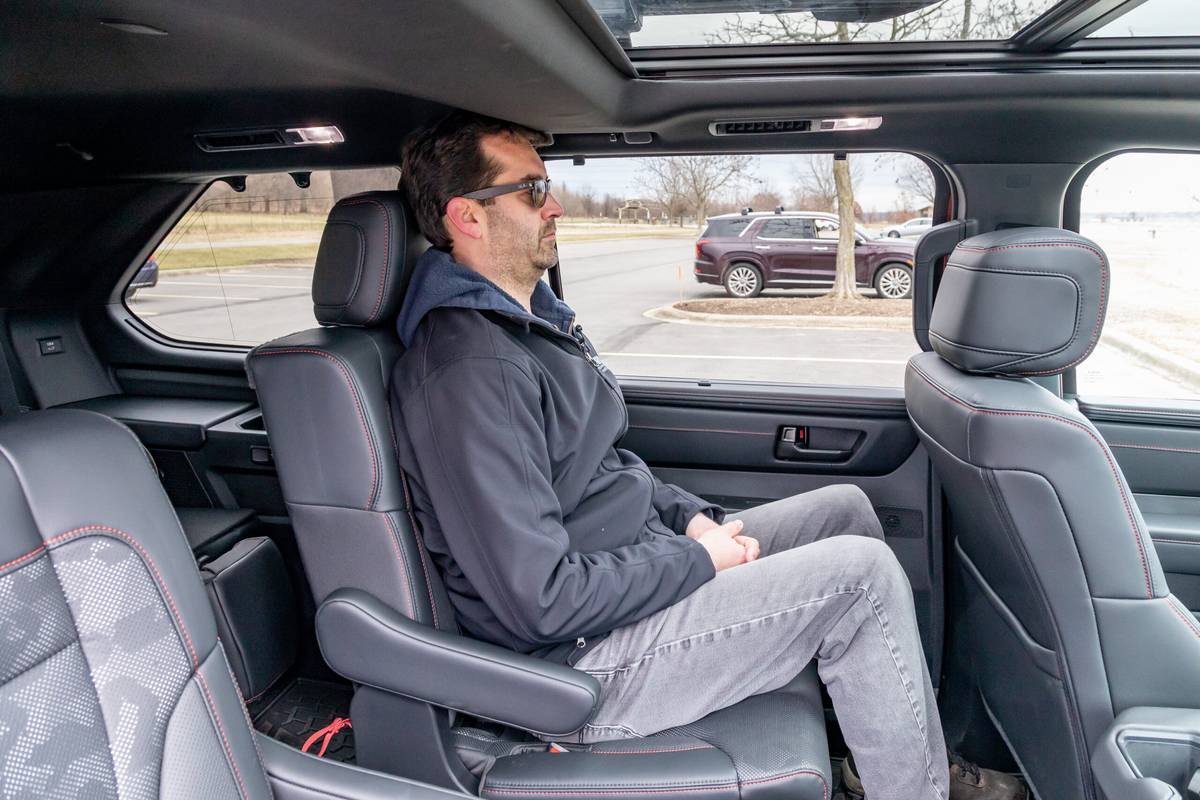
4. Subpar Second-Row Space
The floor is relatively high in the second row, as well, which makes for a less-than-ideal seating position. Legroom is surprisingly tight when the front seats are set far back, and the optional panoramic moonroof (a $500 add-on) takes a serious toll on headroom since there’s a big dip in the headliner directly above second-row passengers. Shorter adults may be OK, but at 6-foot-6, I had to tilt my neck sideways or recline the backrest to an awkward angle so the top of my head wouldn’t hit the headliner; Managing Editor Joe Bruzek (pictured here) is 6 feet tall, and his head brushed the headliner, as well.
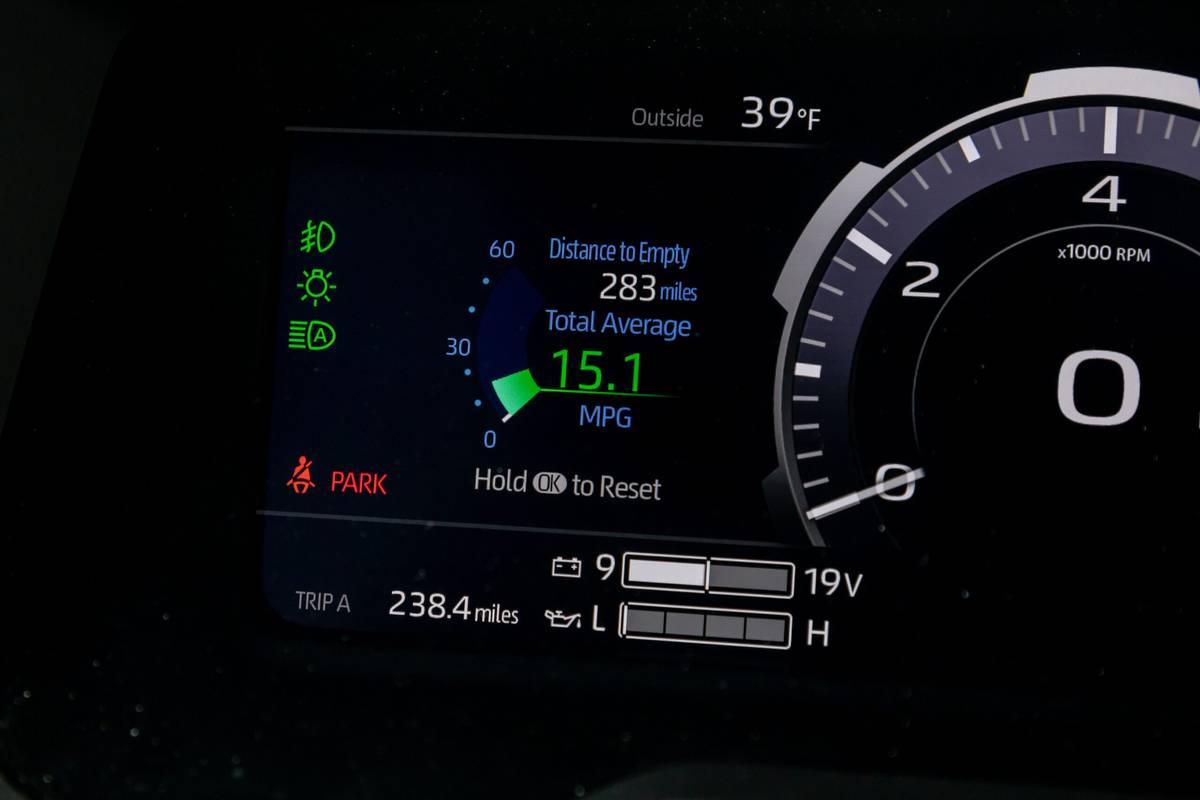
5. Disappointing Real-World Fuel Economy From Hybrid Powertrain
We didn’t perform a full fuel-economy test with the Sequoia, but our average calculated fuel economy after 234 miles of mixed driving was 17.4 mpg — better than the dashboard readout of 15.1 mpg, but notably off the 4WD Sequoia’s EPA estimates of 19/22/20 mpg. The Sequoia’s EPA combined mpg is a couple mpg ahead of a comparable Chevrolet Tahoe or Ford Expedition, but it doesn’t strike me as an advantage significant enough to justify the Sequoia’s compromised passenger and cargo space.
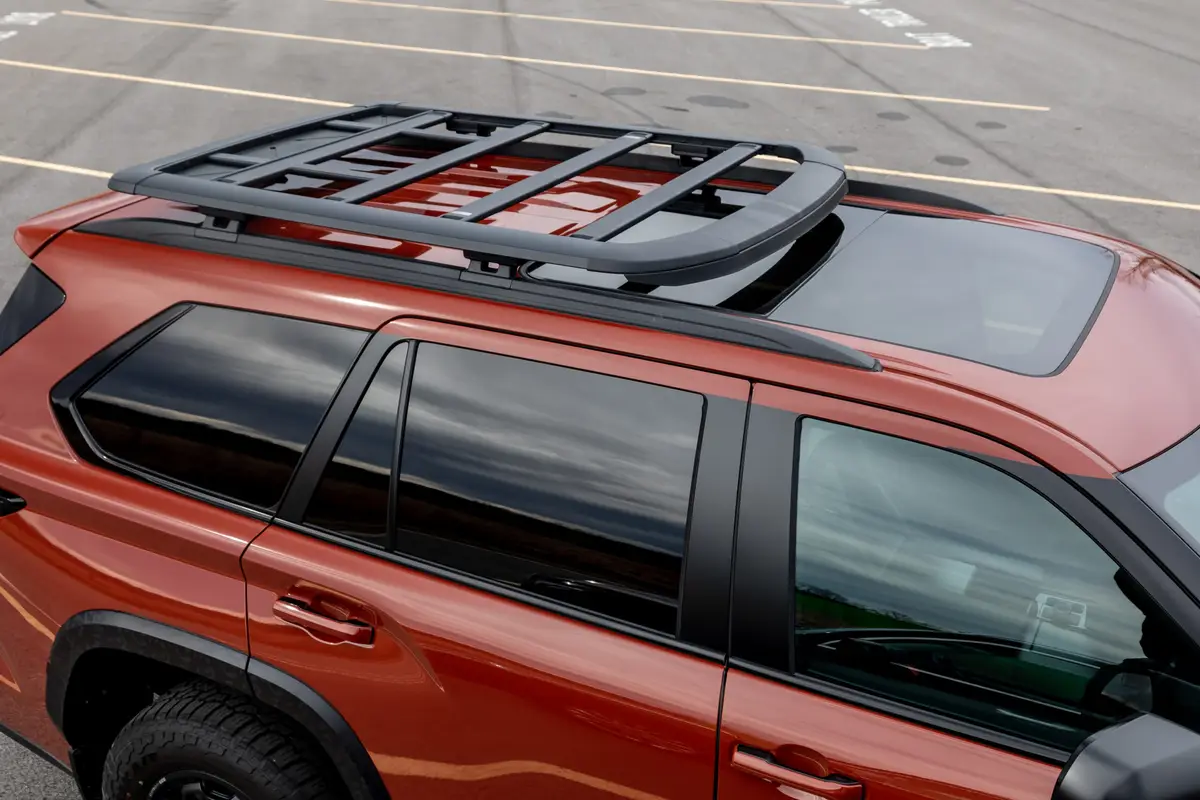
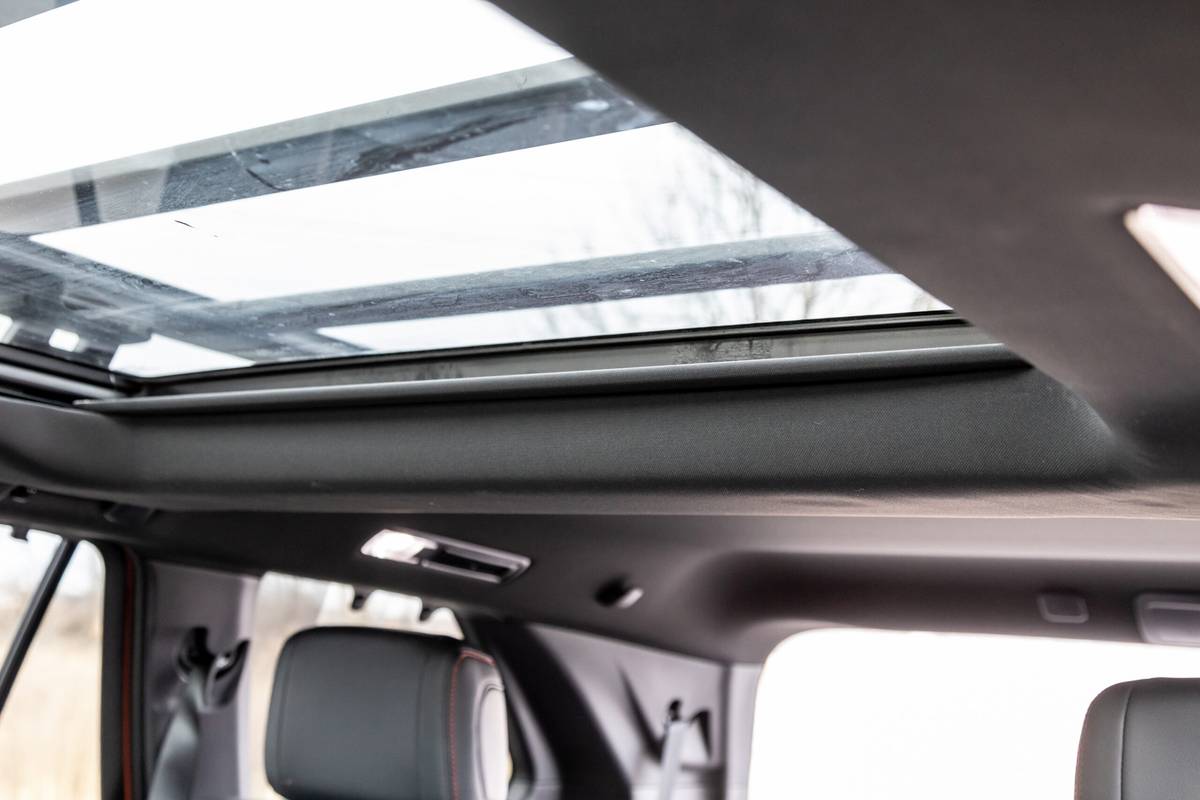
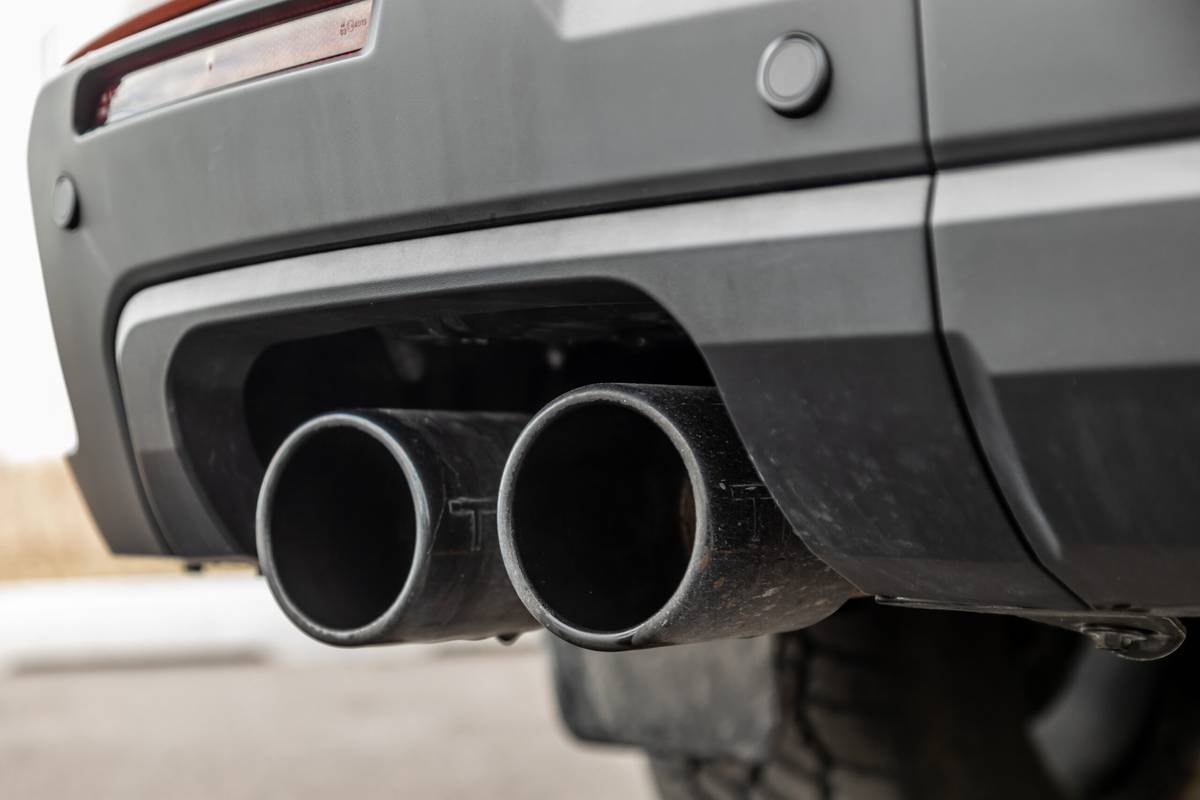



6. Noisy Add-Ons
Toyota says the Sequoia TRD Pro’s dual-exhaust tip “provides added growl and visual appeal.” It does give the Sequoia a brawnier look, but I didn’t find the added growl appealing at all. The exhaust note is loud enough to be annoying to my ears, especially on a cold start-up, and it doesn’t quiet down much in normal driving. The hybrid system’s turbo V-6 doesn’t sound terrible, but it’s nowhere near as sonorous or satisfying as a V-8’s burble.
Along the same lines, the TRD roof rack (a $1,395 option) makes the Sequoia look ready to tackle the Rubicon Trail, but it creates some serious wind noise in highway driving. Pairing the rack with the panoramic moonroof almost certainly makes the racket in the cabin worse — and the rack kind of spoils the open-air vibe for backseat passengers anyway since it is mounted over the back half of the moonroof.
7. Old-School SUV Handling Feel
Despite the Sequoia being a newer design than its primary domestic-brand competitors, it doesn’t feel as buttoned down as those rivals from a ride and handling standpoint— at least in TRD Pro form. The Sequoia’s lack of body control and wallowy feel don’t match the controlled responses you get in a Tahoe or Expedition.
More From Cars.com:
- Is the Redesigned 2023 Toyota Sequoia a Good SUV? 5 Pros and 4 Cons
- 2023 Toyota Sequoia Vs. 2022 Ford Expedition: How Do the Big SUVs Compare?
- Which 3-Row SUVs Offer Captain’s Chairs?
- Research SUVs
- Shop for a 2024 Toyota Sequoia
Related Video:
Cars.com’s Editorial department is your source for automotive news and reviews. In line with Cars.com’s long-standing ethics policy, editors and reviewers don’t accept gifts or free trips from automakers. The Editorial department is independent of Cars.com’s advertising, sales and sponsored content departments.

Senior Research Editor Damon Bell has more than 25 years of experience in the automotive industry, beginning as an Engineering Graphics researcher/proofreader at model-car manufacturer Revell-Monogram. From there, he moved on to various roles at Collectible Automobile magazine and Consumer Guide Automotive before joining Cars.com in August 2022. He served as president of the Midwest Automotive Media Association in 2019 and 2020.
Featured stories
